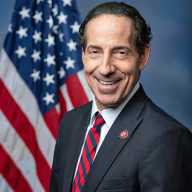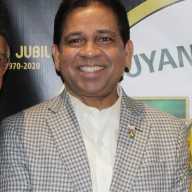It looks like we’re inching toward a possible reprise of the kind of GOP behavior we got in the mid 1990s, when the macho feel of congressional majority power precipitated two government shutdowns, one of them, we would learn, ludicrously aided and abetted by then speaker Newt Gingrich’s state of pique over a perceived diss aboard Air Force One. This time around, it’s fanaticism running rampant in those GOP/Tea Party ranks on the issue of increasing tax revenues, which has apparently been anointed their sacred cow bar none, and conjoined with the critical national debt ceiling talks.
David Brooks, the New York Times columnist, had his conservative bona fides challenged by some on the right when he recently took aim on the Republicans’ unyielding stand against adjusting tax rates for the wealthiest income earners and ending business-sector subsidies (as for oil giants) that right now appear quite gross. Brooks asserted that the Republican mantra about holding fast on taxes, in the face of massive spending-cut compromises advanced by Democrats, was indefensible and merely indicative of Republicans’ customary resort to ideological blinders. He noted that the Republican Party “may no longer be a normal party. Over the past few years, it has been infected by a faction that is more of a psychological protest than a practical governing alternative.” Cynics may wonder at Brooks’ diffidence in stepping so gingerly around a GOP regression that is well beyond the stage of “may no longer be a normal party.”
The scuttlebutt is that John Boehner, the current speaker, has been hamstrung by the shrill voices on the right; that absent this element, an agreement with the president and congressional Democrats on the tax revenue question and raising the debt limit would already be a fait accompli. It’s a familiar story. Right-side hardliners imposing their values on the GOP brand of recent decades is, for the foreseeable future, seemingly a non-reversible feature of the country’s hand-to-hand political combat. The wave of anti-Obama emotion, fueled by economic jitters, that gave Republicans a House majority last November, Tea Party screamers prominent among them, was always seen likely to test Boehner’s ability to keep the rump in check. Best we can tell, the rump has now presented to Boehner his “do or die” Waterloo moment. No one should be shocked if indeed he caved.
A penchant for thick-headed clinging to some well-worn conservative article of faith, notwithstanding hard countervailing reality, is standard practice under that tent. It is with a certain relish, for instance, that Michele Bachmann, masquerading these days as a credible presidential wannabe, declares that she absolutely won’t be voting for raising the debt ceiling. No doubt viewed by the likes of Bachmann as patriotic duty. Conservative David Brooks, predisposed to a whole other sensibility, of course weighs in differently: “The members of this movement have no sense of moral decency…talk blandly of default and are willing to stain their nation’s honor.”
The wall of defiance has by now become a conservative playbook ritual. Defying popular opinion in the course of digging in obstinately is old hat. We’ve seen it with global warming and environmental ruination generally; we’ve seen it with the Teri Schiavo episode; we’ve seen it with the Bill Clinton impeachment vote; we’ve seen it recently with the overhaul of Medicare that the House GOP insisted on passing. Always, it seems, power in these particular hands is read as muscle-flexing time in lopsided preference to the opportunity it offers for consensus governing.
And by no means does Washington have the market cornered in such conduct unbecoming. The din from Tea Party types was loud enough to sweep adherents in several states who have ridden the wave to get in on the “push the envelope” fad as well. In April 2010 Arizona’s Republican controlled legislature passed and its Republican governor signed into law a controversial immigration measure that permits law enforcement officers to stop folks on the street and demand documentation validating their immigrant status.
As much dust as was kicked up by Arizona’s action, Alabama was evidently determined to lead the pack in immigrant crackdown overkill. Alabama’s Republican governor and others involved in the law that was passed last month have been singing the praises of their handiwork. It requires schools to find out if students are in the country lawfully; it makes it a crime to knowingly give an illegal immigrant a ride; and it allows the police to arrest anyone suspected of being an illegal immigrant, if that person is stopped for some other reason. You readily understand why the extremists in Alabama would be crowing themselves silly over stuff like this.
In Wisconsin, we of course have that upstart Republican governor and his legislative confederates doing their darnedest to effect a major erosion of workplace rights. It’s logical to assume that the move on the state’s public employees is precursor to an attempt to have labor in general looking over its shoulder and on the defensive. Probably someone’s surrealistic vision of labor’s new normal in 2011!
The fat lady is yet to sing, as court actions proceed in response to some of these brazen initiatives in the aforementioned states and others. As for the nuts in Washington willing to subject the country to the calamitous consequences of a national default, there is perhaps but one recourse, as a radio commentator recently said: Make sure to take names.




















